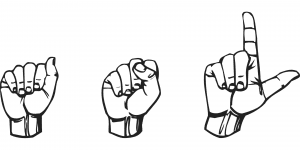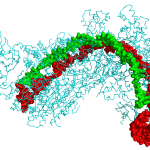
When I have posted about autism, I occasionally have had an argument about terminology. I am autistic. Occasionally a concerned person will tell me that I should call myself someone “with autism.” I’d really prefer you use “autistic” (identity-first language) but can live with you using “with autism” (person-first language). Nobody diagnosed with autism spectrum disorder has ever told me that my language is wrong but only those from outside. In fact, surveys repeatedly show that a decent majority of us prefer “autistic” over “person with autism.”
Most in the disabled community do prefer person-first language and it is the current norm in professional settings. But, we autistics, along with the Deaf and blind, tend to prefer identity-first language. I want to explore why that is from our side and why Christians should use identity-first language for us. Others have explored this elsewhere but I want to present an argument from Christian categories.
Something Global and Intrinsic
Autism, blindness and deafness are global disabilities. If someone is in a wheelchair, once they pull their wheelchair up to a table, they can talk, eat, or carry on a meeting the same as a person with no disability. Being a person “with autism,” sounds like it is a backpack or hairstyle, something external that I can leave from time to time. However, I am never not autistic. However, these three globally affect all of our movements and interactions. This global nature can’t be the only factor as many other disabilities are also global.
I think a large part of why we prefer it is that our disability directly affects language. We can all recognize how American Sign Language is different from American English, even though in written forms they are almost identical. The Deaf have a different language. However, language is more than just words. A blind person would not realize if you wink or shrug your shoulders while talking. Autism is in many ways like blindness regarding communication. I don’t really notice emotional intonation in your speech or facial expressions, and words tend towards their concrete meanings far more than for most people. Although in written form, autistic English is almost identical to normal spoken English, in spoken form, it has noticeable differences. I have a relatively high fluency in normal spoken English but it always remains a bit of a foreign language to me.
Disabilities with Advantages
Secondly, all three of these disabilities also have advantages where our brains build other capacities better. Some claim the deaf and blind have better senses, but they generally argue they just focus more on them. Before I was diagnosed, my nickname was “Schneider-pedia,” which indicates an above-average grasp and knowledge of facts. Such memory is a trait common in autism.
Ultimately, we see autism, deafness or blindness as part of our identity. The Deaf even capitalize the term to indicate their different language and culture is similar to a nationality.
Charity and Encounter
As Christians, Jesus teaches that charity is the first commandment. Pope Francis emphasizes, “Meet[ing] others where they really are.” If the overwhelming majority of those who have a diagnosis of autism want to be called “autistic,” that seems part of charity and meeting us where we are. Meeting people where they are would also mean using person-first language if a person prefers it.
As Christians, Jesus calls us to respect people as persons and show them human dignity. Advocates of person-first language say that this is their point but I wonder if in practice this works for autistics, the blind, and the Deaf. If we see this as a global change in who we are and part of our identity, making it sound like an optional external actually seems to cut into our dignity. Hence, we prefer identity-first language.
Not All Negative
Finally, identity-first language helps you see the good in our condition along with the challenges. When others see me as a priest with autism, people tend to only see the negatives of autism, however, as an “autistic priest” I can more easily emphasize the positives like my incredible memory of theology and random facts. Likewise, when I said Mass for the Deaf community in Washington, I noticed many of them were very sensitive to visual stimuli.
Conclusion
Obviously, there are limits on this. I was diagnosed with Autism Spectrum Disorder, I was not diagnosed autistic. If a blind person asks for a screen-reading program for their work computer, the boss might write “employee has vision problems” on the paperwork. Such medical or legal settings are the exception though. Nobody is arguing that every time we mention autism or an autistic person we need to use the full formal medical diagnostic term, Autism Spectrum Disorder.
I pray that we Catholics can respect those in these three communities by using the language they (we) prefer. This should apply to person-first or identity-first language. I appreciate it when people say I’m an autistic priest.
Note: please sponsor me on Patreon if you like my writing. It helps me keep writing.
















